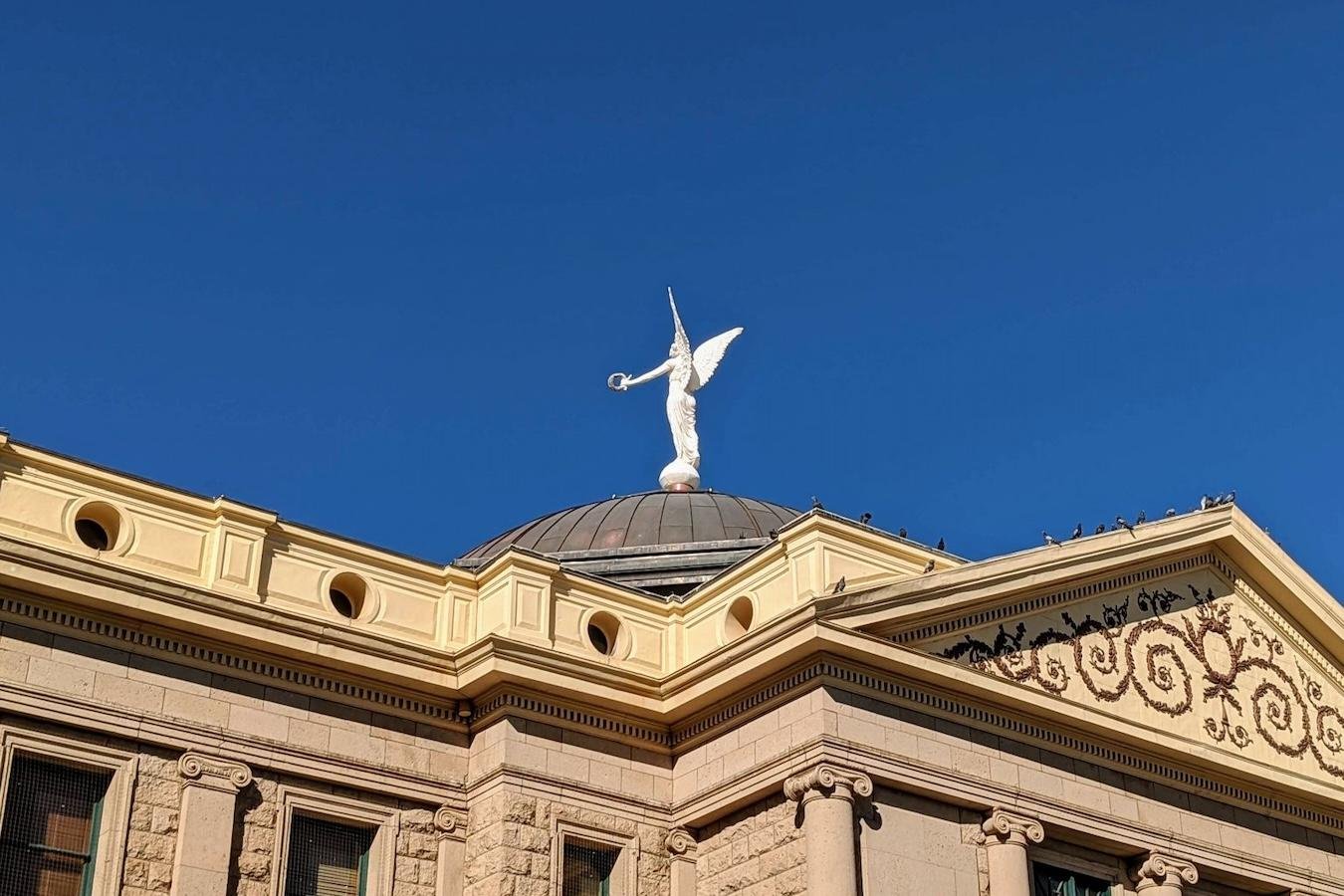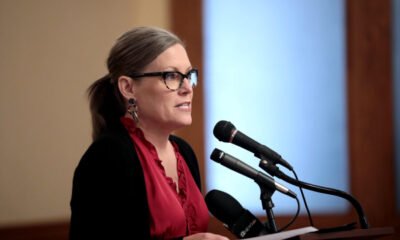Business
Hobbs Finalizes Arizona Budget, Preventing Shutdown After House GOP Stalemate Ends

Arizona’s budget impasse has officially concluded. After weeks of contentious negotiations among Republican lawmakers in both the House and Senate, Democratic Gov. Katie Hobbs signed the $17.6 billion state budget with bipartisan support. This crucial decision came just three days before the June 30 deadline to avert a government shutdown.
The budget, consisting of 16 bills, was a product of talks between the Senate and the governor. The House approved it late Thursday evening, predominately through a 41-15 vote. The Senate followed suit around midday Friday, giving its final nod with a 21-8 vote. Hobbs then signed the budget early Friday evening.
As both legislative chambers agreed to conclude their session, it marked a challenging budgeting process that began on January 13. Initially, budget discussions stalled after House Republicans broke away from negotiations, proposing their own $17.3 billion budget filled with conservative priorities. This proposal met a veto from Hobbs, leading to further gridlock.
House Republicans faced criticism after finally considering the Senate’s negotiated budget, which they had previously dismissed. Their recent changes were mostly minor, and many senators pointed out that the finalized budget closely resembled the one they had previously rejected, branding it the “Hobbs budget.”
House Republicans contended that they secured “major concessions,” claiming around $100 million in savings. Yet this amounted to only about 0.6% of the total budget. The Joint Legislative Budget Committee indicated that the final expenditure total was only $28 less than the Senate’s original proposal.
Senate chief budget negotiator John Kavanagh stated that the main difference in the budget was simply House Republicans coming on board. Senate President Warren Petersen echoed this sentiment, expressing frustration over the protracted process, which he deemed unnecessary. “Those who allowed this to happen should get their house in order,” Petersen remarked.
Opposition largely stemmed from the far-right Arizona Freedom Caucus, which attempted to prolong the process with amendments and procedural tactics. Other Republican members urged these holdouts to recognize the realities of a split government and refrain from pursuing changes likely to lead to further vetoes.
Key provisions in the budget included 5% salary increases for state troopers, full funding for the universal school voucher program, and the Developmental Disabilities Parents as Paid Caregivers Program. The House introduced amendments not originally in the Senate version, such as $2.3 million for Arizona fire departments and expedited plans for I-10 expansion.
Some Democrats opposed the budget due to concerns over $24 million for border enforcement and insufficient oversight for the school voucher program. Though many had previously voted for similar budgets, the current political climate influenced their decisions. “Today is a good day for Arizona,” remarked Senate Minority Leader Priya Sundareshan, highlighting the refusal to capitulate to far-right demands.
Sen. Theresa Hatathlie, a Democrat from the Navajo Nation, also voted against the budget, citing a lack of consultation with Native lawmakers and absence of tribal funding. She criticized the drawn-out process for causing undue stress among constituents worried about a potential state shutdown. “It’s time to act with maturity and engage in constructive discussions,” she emphasized, expressing dismay at the legislative theatrics.










![Members of the Arizona House of Representatives vote during a third reading of nearly three dozen bills at the Arizona State Capitol on March 4, 2025. [Monica D. Spencer]](https://arizonanews.org/wp-content/uploads/2025/06/SR-347-Secures-53M-in-Third-State-Budget-Draft-Awaiting-400x240.jpg)
![Members of the Arizona House of Representatives vote during a third reading of nearly three dozen bills at the Arizona State Capitol on March 4, 2025. [Monica D. Spencer]](https://arizonanews.org/wp-content/uploads/2025/06/SR-347-Secures-53M-in-Third-State-Budget-Draft-Awaiting-80x80.jpg)





